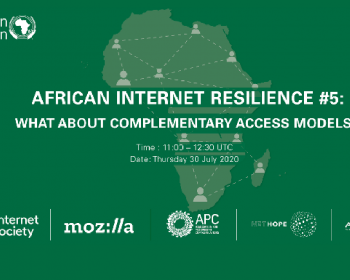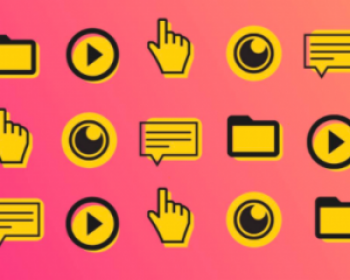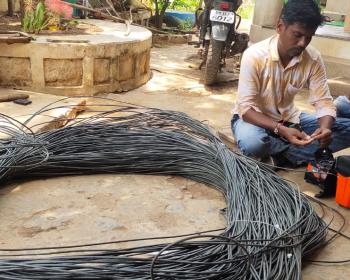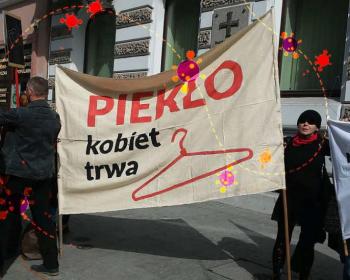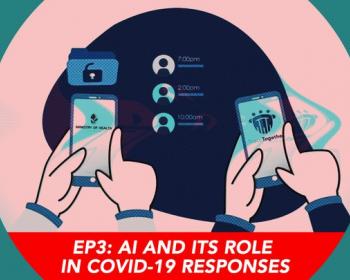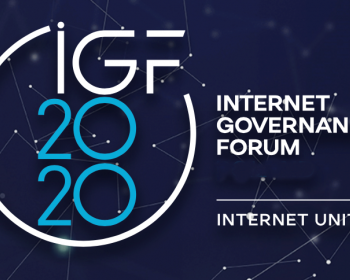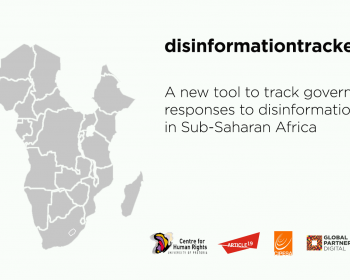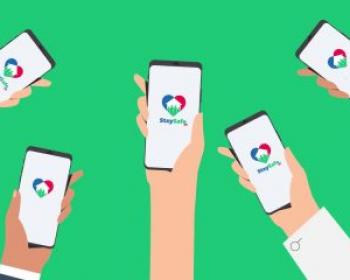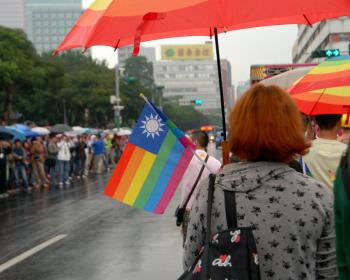Closer than ever
APC understands that we are all dealing with unprecedented circumstances as we face the challenges, fear and uncertainty brought on by the spread of the COVID-19 pandemic. We know it impacts our work, our personal lives and the lives of those we care about. Each country is tackling the situation differently, so the contexts we find ourselves in are as diverse as the ways we find to navigate shifting conditions.
In these exceptional times, we wish to send our solidarity and appreciation for connecting with us. While we are distancing ourselves physically, we continue to stay closer than ever to each other and share tools and resources as well as support. We also want to examine how we can continue to promote human rights online in the context of a global pandemic. We are all facing this problem together but we know it affects different countries and communities in different ways. Therefore, we would like to channel the strength of our network to share some important resources that we hope will be empowering, enlightening and reassuring.
Below you will find articles and insights shared by our community, which has been working on human rights and technology issues for over 30 years. We will be updating these lists on a regular basis, so please feel free to connect with us if you have some resources to share.
How can complementary models promote access in underserved areas? Which policies and regulations should be implemented to enable them? The fifth webinar of the Internet Resilience in Africa series will take place on 30 July to address these issues.
Because of the pandemic, more people are staying home and enjoying the benefits of technology. Women, however, can have a different online experience as gender-based violence manifests in various ways in virtual spaces.
Because of the pandemic, India has been under lockdown since March. What does this mean for rural communities, only 20% of whom have access to the internet? Community networks established by organisations like Digital Empowerment Foundation are bringing critical services to 100 villages of India.
As a new bill which could restrict abortion even further was debated, Polish women found new ways to continue their protests for abortion rights, even in the face of lockdown measures caused by COVID-19.
On the third episode of Pretty Good Podcast, ARTICLE 19 digital programme officer Vidushi Marda dissects the role of artificial intelligence (AI) in the region’s response to COVID-19 and what the new applications of this technology mean for digital rights after the pandemic.
This week some thoughts on this year’s iteration of one of WSIS’ major outcomes, the Internet Governance Forum or IGF.
The COVID-19 pandemic has led to the dissemination of vast amounts of information, both verified and unverified. Against this backdrop, civil society organisations recently launched the Disinformation Tracker, an interactive map to track disinformation laws and policies across Sub-Saharan Africa.
The Philippine government has launched an exposure notification application, StaySafe.ph, which aims to contain the pandemic in the country. While the effort is commendable, the importance of combating COVID-19 while protecting people’s individual freedoms cannot be emphasised enough.
Students are facing infrastructural challenges in attending online classes, which are mandatory. The unavailability of quality access to the internet is causing massive challenges for students who are solely dependent on online platforms for education during COVID-19.
Amid physical and social distancing guidelines across the world, LGBTQI+ organisations faced roadblocks in fully celebrating this year’s Pride month in person. So this 2020, the organisers of Pride marches needed to explore new ways of expressing that unity fully – if not mainly – online.

Association for Progressive Communications (APC) 2022
Unless otherwise stated, content on the APC website is licensed under Creative Commons Attribution 4.0 International (CC BY 4.0)



